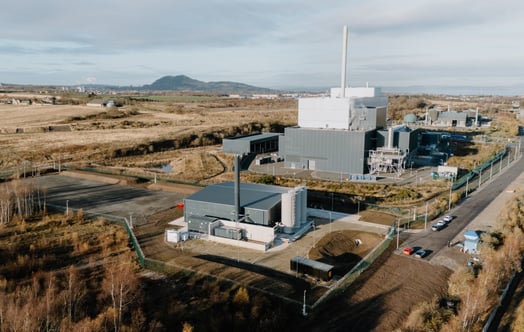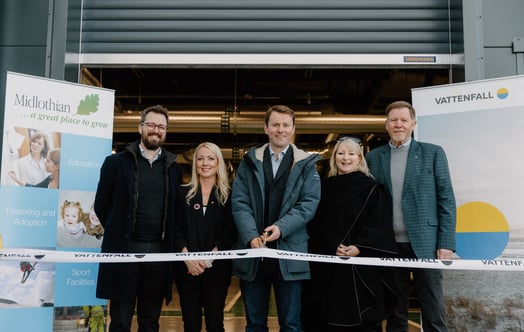Utilising the existing gas grid network is instinctively a smart idea as a route to decarbonising domestic heating in the UK.
A recent blog post by Joel Gustafsson from CIBSE sparked interesting conversations within the team at Vattenfall Heat UK.
Decarbonising domestic heating in the UK
The UK government predicts that 20% of domestic heating will be provided using heat networks by 2050, though the other 80% of the market also needs addressing if we are to decarbonise as rapidly as necessary.
The role of hydrogen in domestic heating has many facets to be explored including :
- Green production of H2
- Storage
- Transportation of H2
- The burning of H2 in homes
Hydrogen production today
Steam Methane Reforming (SMR), alongside a few other fossil fuel-based methods (such as coal gasification) produces 95% of the hydrogen used in the UK today. It relies on heating methane to a high temperature and pressure under the presence of a catalyst and produces hydrogen and carbon dioxide. Currently SMR results in 30% of the input energy being wasted, adding Carbon Capture and Storage technology could reduce the energy efficiency of the process by a further 14%1. Furthermore, the true carbon emissions from this method of production is widely under question across the technology sector.
Green electrolysis, as addressed in the CIBSE article, is also considered to be inefficient with 35% of energy being lost in the process. Additionally, in the UK we are currently lacking the scale and technology to viably produce masses of hydrogen using this method.
Another very effective point made by Gustafsson concerns the storage of hydrogen: “If we are to use (hydrogen) as a direct replacement, we will need three times more storage and distribution capacity than we currently have for methane.’.
Hydrogen to solve today’s issues
Alongside the energy efficiency and technology factors of burning hydrogen in homes it is important to address the production of nitrous oxides, a harmful pollutant which causes air quality issues in cities. 2 million people in London living with illegal air pollution and nationwide 28,000 deaths a year being attributed to long-term poor air exposure we need to carefully consider air quality2.
Hydrogen burns at 2000˚C, will be in high demand, and will come at a high cost, therefore using it to heat air to 20˚C and hot water to 60˚C doesn’t appear to be the most effective use of resources.
However, from an engineering perspective, hydrogen technology advancement is exciting and it will most certainly have a role to play in the decarbonisation of sectors including industry, heavy transport and heating across the globe. Significant advancements are still needed to produce the capacity of truly green hydrogen ‘en masse’, and we need to start changing things now.
To more effectively tackle the climate emergency, we should focus on our existing resources, and the rapidly increasing portfolio of cheap renewable electricity is one of these resources.
Heat networks as part of the answer
Space heating can, in circumstances, be economically supplied by waste heat and local renewables, with heat networks allowing the effective connection of sources to each other and to end customers. Heat pumps take on a crucial role in heat networks in order to maintain the heat at a usable temperature, efficiently using 1 kWh of electricity to produce approximately 3 kWh of heat.
This allows a resource efficient approach, reusing waste heat and allowing the transition of the space heating process to a more circular and sustainable system. Heat networks also allow the possibility to create hybrid systems of mixed assets, keeping options open for future developments in the energy market.
The answer to decarbonising domestic heating has to be localised
The pairing of a heat solution to the geographical area, housing density and building efficiency, just to name a few factors, will have to be considered on a localised level in the UK for a truly effective de-carbonised heating system.
Written by
Hannah Spurgeon
3rd Year Industrial Placement Student from the University of Bristol, studying Engineering Design.




